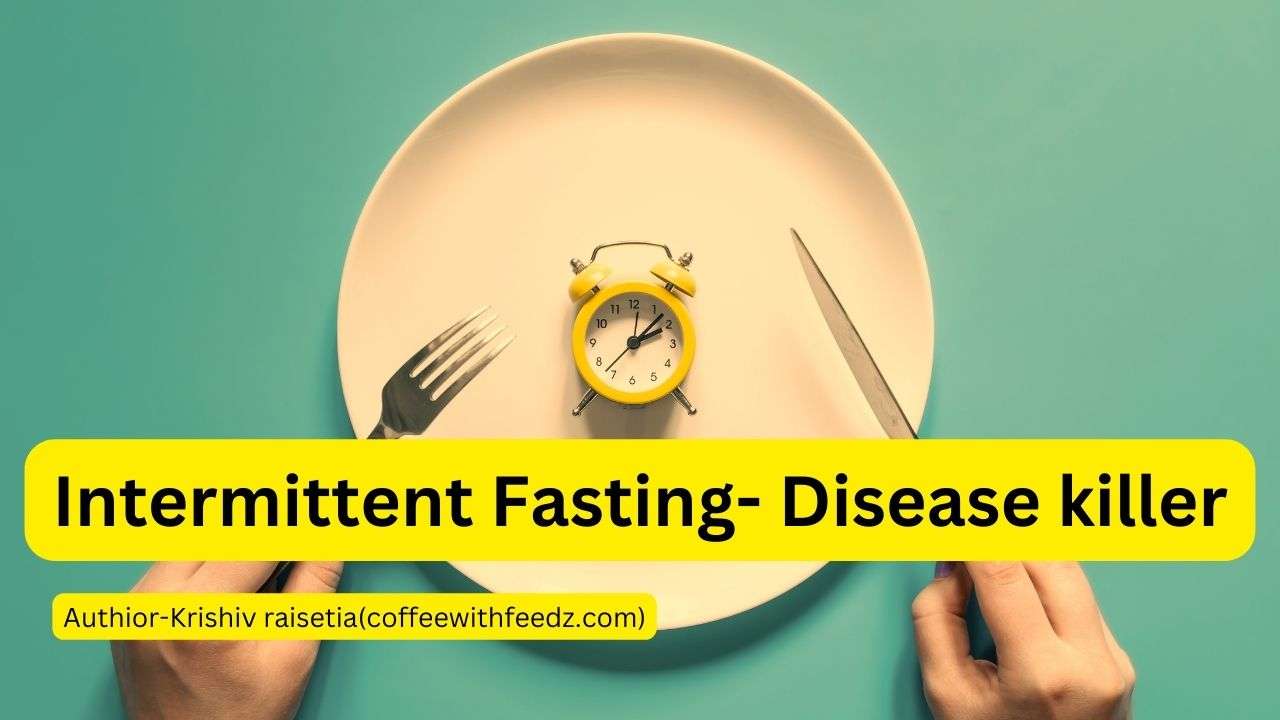In a world where diets often focus on what to eat, intermittent fasting stands out by emphasizing when you eat. This eating plan, supported by research, shows promising results in weight management and disease prevention. However, it’s essential to explore how to do it safely and effectively.
What is Intermittent Fasting?
Imagine a lifestyle where you eat during specific times, alternating between fasting and eating. Johns Hopkins neuroscientist Mark Mattson, who has dedicated 25 years to studying diets, explains that our bodies have evolved to function well without food for extended periods.
In prehistoric times, when hunting and gathering were the norm, humans thrived during long intervals without eating.
Fast forward to today, where technology and entertainment keep us awake for longer hours, often leading to constant snacking and potential health risks. Intermittent fasting aims to break this cycle by introducing specific eating and fasting periods.
How Does It Work(Intermittent Fasting)?
Intermittent fasting operates on the principle of metabolic switching. After several hours without food, the body depletes its sugar stores and begins burning fat. Mattson notes that this is a departure from the typical American eating pattern, where constant snacking prevents the body from tapping into its fat stores.
There are various intermittent fasting plans, including daily approaches like the 16/8 fasting, where you eat for eight hours and fast for 16. Another popular plan is the 5:2 approach, involving regular eating for five days and limiting calorie intake to 500-600 calories on two non-consecutive days.
What to Eat During this process?
While fasting, water and zero-calorie beverages like black coffee and tea are allowed. During eating periods, focus on nutritious, whole foods. Experts often recommend a diet similar to the Mediterranean diet, rich in leafy greens, healthy fats, lean protein, and unrefined carbohydrates.
Int Fasting Benefits
Research indicates that intermittent fasting offers more than just weight loss. Mattson’s studies reveal benefits such as improved thinking and memory, enhanced heart health, better physical performance, and potential advantages for those dealing with type 2 diabetes and obesity. Additionally, it may contribute to tissue health, reducing damage and improving recovery.
Another benefit of intermittent fasting is those individuals who has fatty liver either grade1 or 2 , they can easily reverse their fatty liver condition by simple following the rule.
Is Intermittent Fasting Safe?
Before embarking on any diet,consult with your primary care practitioner, especially if you fall into categories like children, teens, pregnant or breastfeeding women or having a chronic disease. Safety is paramount, and any unusual symptoms should be discussed with your doctor.
Conclusion
Intermittent fasting isn’t just a passing trend; it’s a lifestyle change with potential health benefits. While it may not be suitable for everyone, those who can follow it safely often find improved well-being and sustained weight management.
Remember, individual responses may vary, so regular check-ins with your healthcare provider are crucial to ensure a positive and safe experience.
Thanks for reading our post till end you can check our webstories for more information and entertainment-https://coffeewithfeedz.com/
